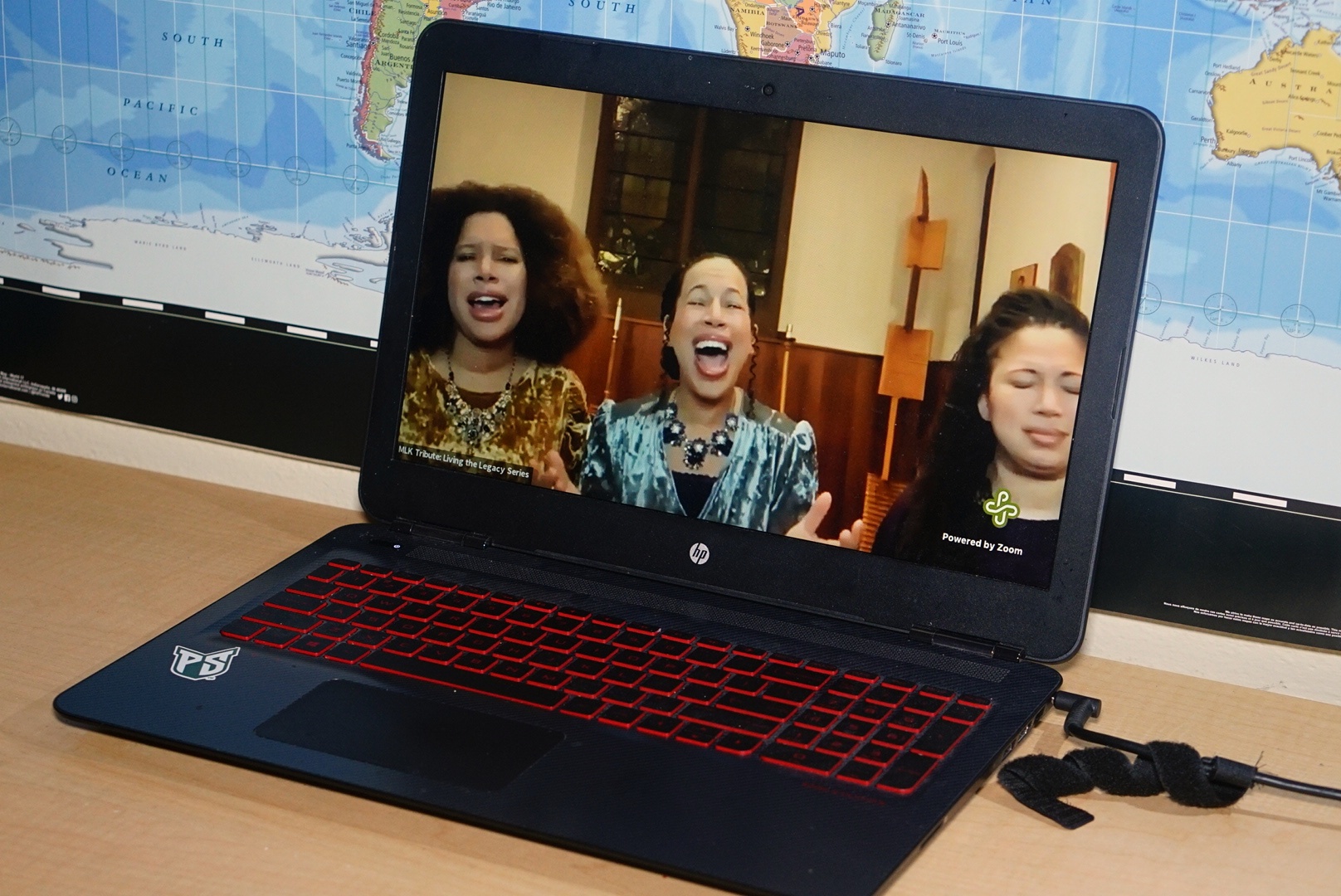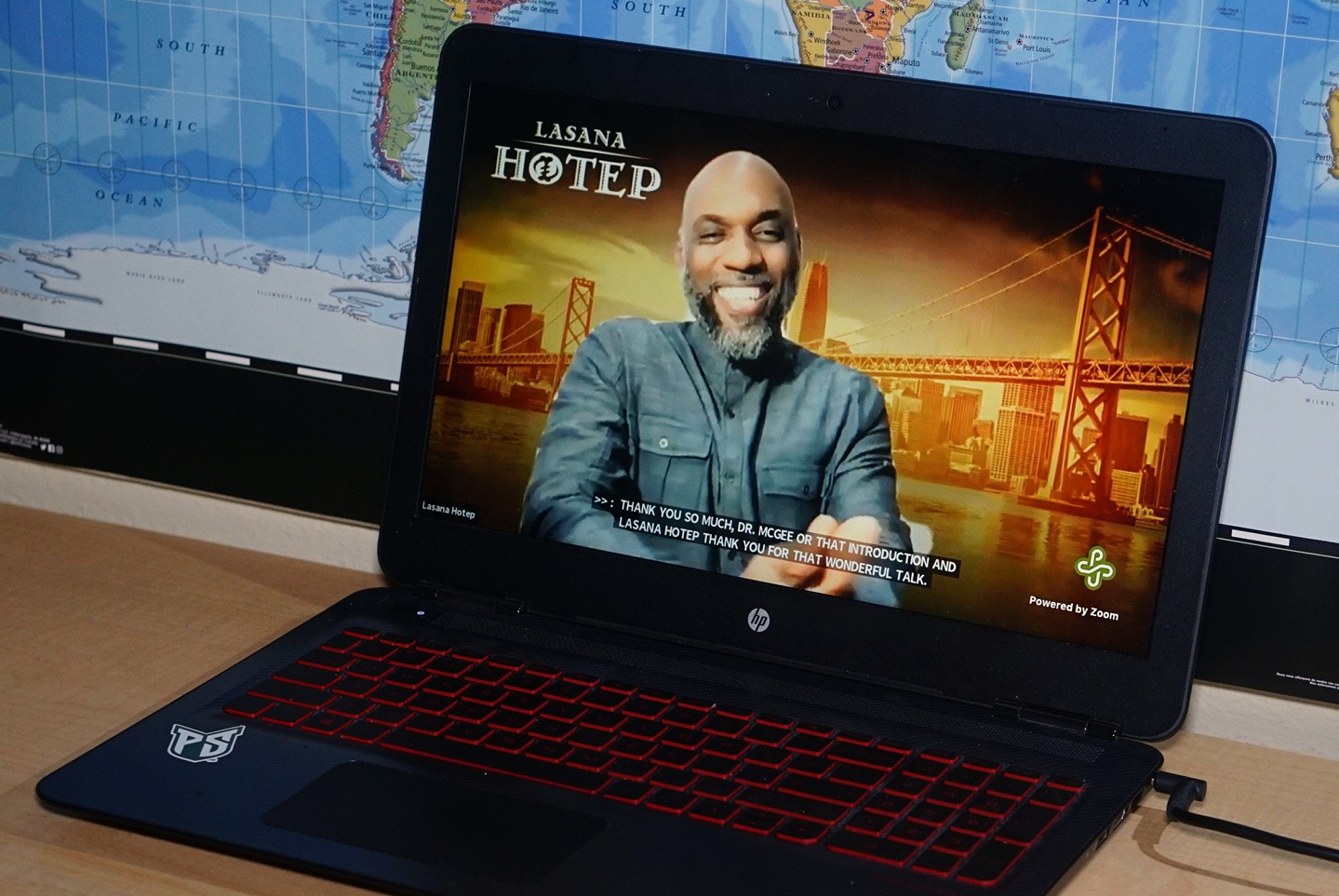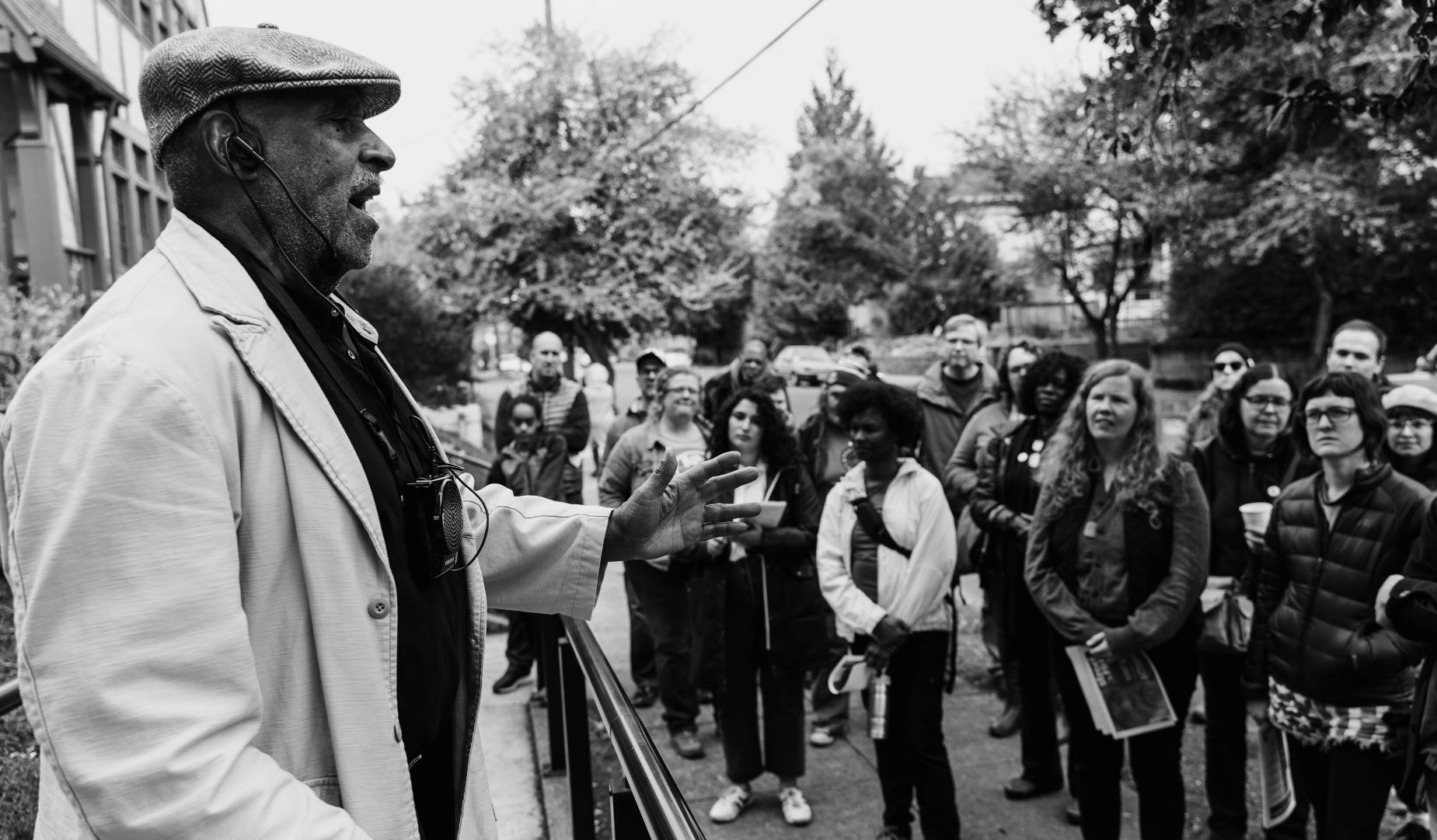“In the end, we will remember not the words of our enemies, but the silence of our friends.”
– Martin Luther King Jr.
On Jan. 15, Portland State hosted “The Silence of Our Friends: The Anti Racist Legacy of Martin Luther King Jr.,” the first of a three-part series of events celebrating the legacy of MLK. The event invited Lasana Hotep, an antiracist educator and the first director of Diversity, Equity, Inclusion and Belonging at UC Berkeley, to give a keynote speech, on how MLK’s legacy can help address racism now, and in the future.
Through the department of Global Diversity and Inclusion (GDI), PSU has hosted a series of events to honor MLK annually, and 2021 is no different, despite making the move to a virtual space.
“The annual MLK events provide an opportunity to pause, reflect and take stock of the journey to justice, equity and full citizenship; of the call to, and the joys and costs of, leadership and service; and of the power of vision, persistence, courage, community and intentionality in supporting extraordinary impact,” stated Dr. Ame Lambert, vice president for GDI, on the events’ website.
Two more events are to come: “From Resilience to Black Liberation: Uprooting Systems of Inequity,” a virtual teach in, on Saturday, Jan. 23, and “In Conversation: A Conversation through Portland’s Black Life,” a Black Studies faculty panel, on Tuesday, Jan. 26.
Friday’s event was hosted through Zoom for registered participants, livestreamed on YouTube, and moderated by Dr. Julius McGee, an assistant professor for Urban Studies and Planning and Black Studies. Before the keynote speech, the event featured performances by singing group The Brown Sisters and the Sebé Kan Youth African Dance Troupe. With additional time at the end of the event, a short Q&A session was hosted, for Hotep to answer participants’ questions.
PSU President Stephen Percy gave a short welcoming speech to open Friday’s event, and those to come.
“PSU is Oregon’s most diverse university, and our actions, our teaching, our research [and] our community engagement all must honor, appreciate and build upon that diversity, promoting equity and justice at Portland State,and in so many varied ways, be informed by the wisdom, the teachings and the spirit of Dr. Martin Luther King Jr and all the things he has given us,” Percy said. “Anti-blackness and white supremacy are all too alive, and in all elements of our lives and our community, it’s time to eliminate that. It’s time for equity, it’s time for justice.”
Hotep’s speech was introduced by Elijah Roach, a Cultural Anthropology student and ASPSU Senator.
“Honoring MLK’s legacy means to lean into uncomfortability, to recognize how we are intimately connected to historical and contemporary trauma,” Roach said. “Honoring MLK’s legacy means to break the cycle to [these] old structures of thought and action based in white supremacy. In honoring the legacy of those who came before us, and MLK, we must recognize diversity in its entirety, non-fragmented.”
In his speech, Hotep focused on one quote from MLK in particular: “In the end, we will remember not the words of our enemies, but the silence of our friends.” With this quote, Hotep addressed and stressed the danger of benign neutrality, or those who, while they aren’t committing obvious acts of racism, aren’t acting against racism, either.
“If you understand and you know that these issues are disproportionately impacting certain communities, it’s time for you to stand up,” Hotep said. “It’s time for you to embrace the legacy of Martin Luther King, because some people are making it quite clear that this silence is equally deadly.”
2021 also marks the first MLK day since the murder of George Floyd in May of 2020 and the protests for racial justice across the country that followed. According to numerous polls, the Black Lives Matter movement behind the protests is the largest in United States history. In discussing MLK’s legacy, it couldn’t go unmentioned.
“It’s not what he did in his time, but us taking the time to learn the lessons from his time, reflect on his organizing skills, reflect on his courage, reflect on his ability to mobilize human beings, and put themselves at risk for a cause that they may not benefit from,” Hotep said. “We don’t have to wonder what we would have done. We have to look at what we’re doing.”
Benign neutrality, according to Hotep, is most egregious when people observe MLK day and wonder what they could have done themselves during the Civil Rights movement—without taking any action to end racism today.
”This imagination…that everybody had the same values as Martin Luther King Jr. in the United States of America, that is a falsity. That was not reality. He was despised. He was hated.”
Working actively to end racism, instead—antiracism—is the only way to end racism, Hotep stressed, as well as the key to honoring, celebrating and furthering MLK’s legacy.
“Human progress is neither automatic nor inevitable,” Hotep said. “Every step towards the goal of justice requires sacrifice, suffering, and struggling, and tireless exertions and passionately concerned and dedicated individuals. When you think about anti-racism, the reason why this is so complicated, is because people have made it complicated. It is not that difficult.”
Towards the end of his speech, Hotep said MLK’s legacy doesn’t end with an acknowledgement of his works in the past, but instead, with what he worked for during his life.
“If you want to know Dr. King’s legacy, If you want to embody what he stood for, read the words that he wrote—because Dr. King’s legacy can only live through us. Dr. King’s legacy can only live through our efforts. Dr. King’s legacy can only live through our commitments to see it through. Dr. King’s legacy only means something when we stand up to injustice collectively, and no longer are governed by these horrible rationals that provide some type of justification for the dehumanization, the exclusion and exploitation of human beings.”
“There is no benign neutrality,” Hotep said. “It’s either racist, or its anti-racist.”






